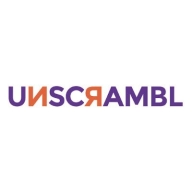

Teradata and QuickBooks Online compete in the area of data processing and accounting solutions, respectively. Teradata shows a competitive edge in data warehousing due to its powerful data handling capabilities.
Features: Teradata is distinguished by its advanced parallel processing capabilities, scalability, and robust data management tools, including the unique Smart Teradata Optimizer and dual partitioning methods. It efficiently processes large datasets and provides exceptional speed and flexibility in executing complex queries. QuickBooks Online is valued for its ease of use in accounting tasks like invoicing and order processing, and is known for effective batch processing and seamless integration with platforms like SAP and Oracle.
Room for Improvement: Teradata users suggest enhancements in cloud integration and support for unstructured data, alongside improved query response times. They also identify a need for better compatibility with other big data platforms. QuickBooks Online faces criticism for limited keyboard shortcuts and inventory management features. Users recommend a smoother integration process with third-party services and enhanced customization options.
Ease of Deployment and Customer Service: Teradata offers deployment options across on-premises, cloud, and hybrid environments which enhances its flexibility. Its technical support is generally considered highly effective in resolving complex issues. QuickBooks Online offers straightforward public cloud deployment, yet its customer service is seen as less consistent compared to Teradata's.
Pricing and ROI: Teradata is regarded as a premium solution due to its extensive capabilities and potential ROI in business analytics, although its licensing is considered expensive. QuickBooks Online is perceived as costly given its service level. Nonetheless, it offers long-term value for smaller businesses focusing on accounting rather than intensive data processing needs.


QBO combines the power of natural language and spontaneous collaboration to deliver on-demand insights to the decision-makers. Winning features of QBO: 1. Easily connect to multiple internal and external datasets 2. Slice-and-diced data in infinite ways using natural language (English) and interactive visualizations 3. Responds easily to descriptive, diagnostic, predictive and prescriptive questions 4. Native integration with Microsoft Teams 5. Save and share your findings easily on interactive boards URL of the product : https://www.unscrambl.com/qbo-insights/ Powered by Unscrambl, we believe that our increasingly complex world of data can be simplified and transformed into actionable insights, saving valuable time and resources for every business. Unscrambl develops next-generation conversational analytics software that gives business users the power to access and consume data instantly and collaboratively. Unscrambl is headquartered in the United States and has offices in Singapore, Turkey, India, and the Philippines. For more information, please visit www.unscrambl.com
Teradata is a scalable data analytics platform designed to meet enterprise demands for large-scale data management and processing, focusing on performance, scalability, and security for complex query executions.
As a leading data warehousing solution, Teradata integrates advanced analytics enabling organizations to derive insights from massive datasets. It supports high-volume data workloads with its architecture optimized for analytical queries. Users benefit from its robust scalability, allowing seamless expansion as data grows. Teradata's SQL engine is compatible with a wide range of data types, ensuring flexibility in data analysis. With advanced security measures, it protects sensitive data across various environments, providing peace of mind to users handling critical information.
What are the most important features of Teradata?Teradata is widely used in industries like finance, telecommunications, and healthcare, where data-driven decisions are critical. Companies leverage its robust analytics capabilities to enhance customer experiences, streamline operations, and ensure compliance with regulatory requirements. In these sectors, quick access to data insights can significantly impact competitive advantage.
We monitor all BI (Business Intelligence) Tools reviews to prevent fraudulent reviews and keep review quality high. We do not post reviews by company employees or direct competitors. We validate each review for authenticity via cross-reference with LinkedIn, and personal follow-up with the reviewer when necessary.